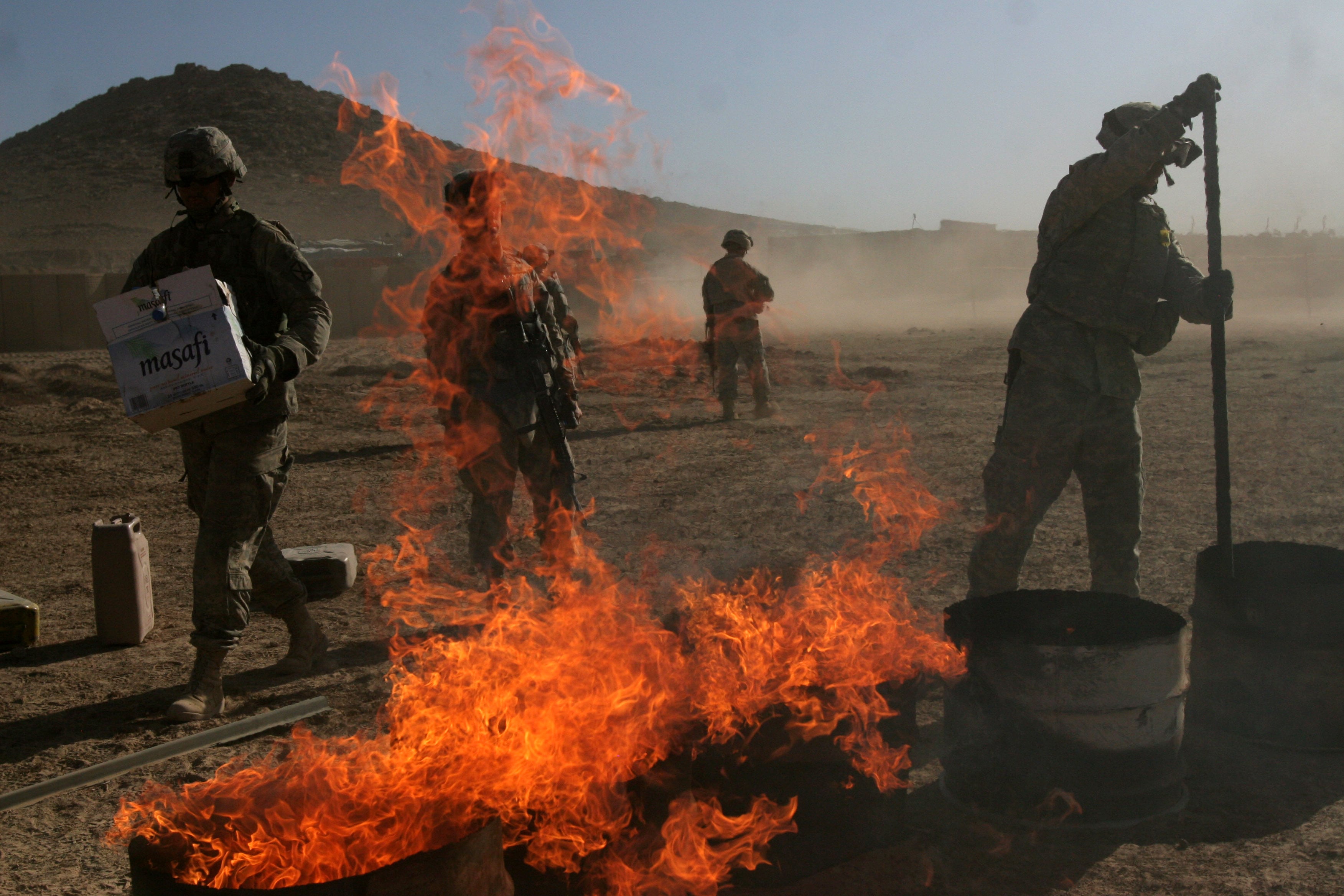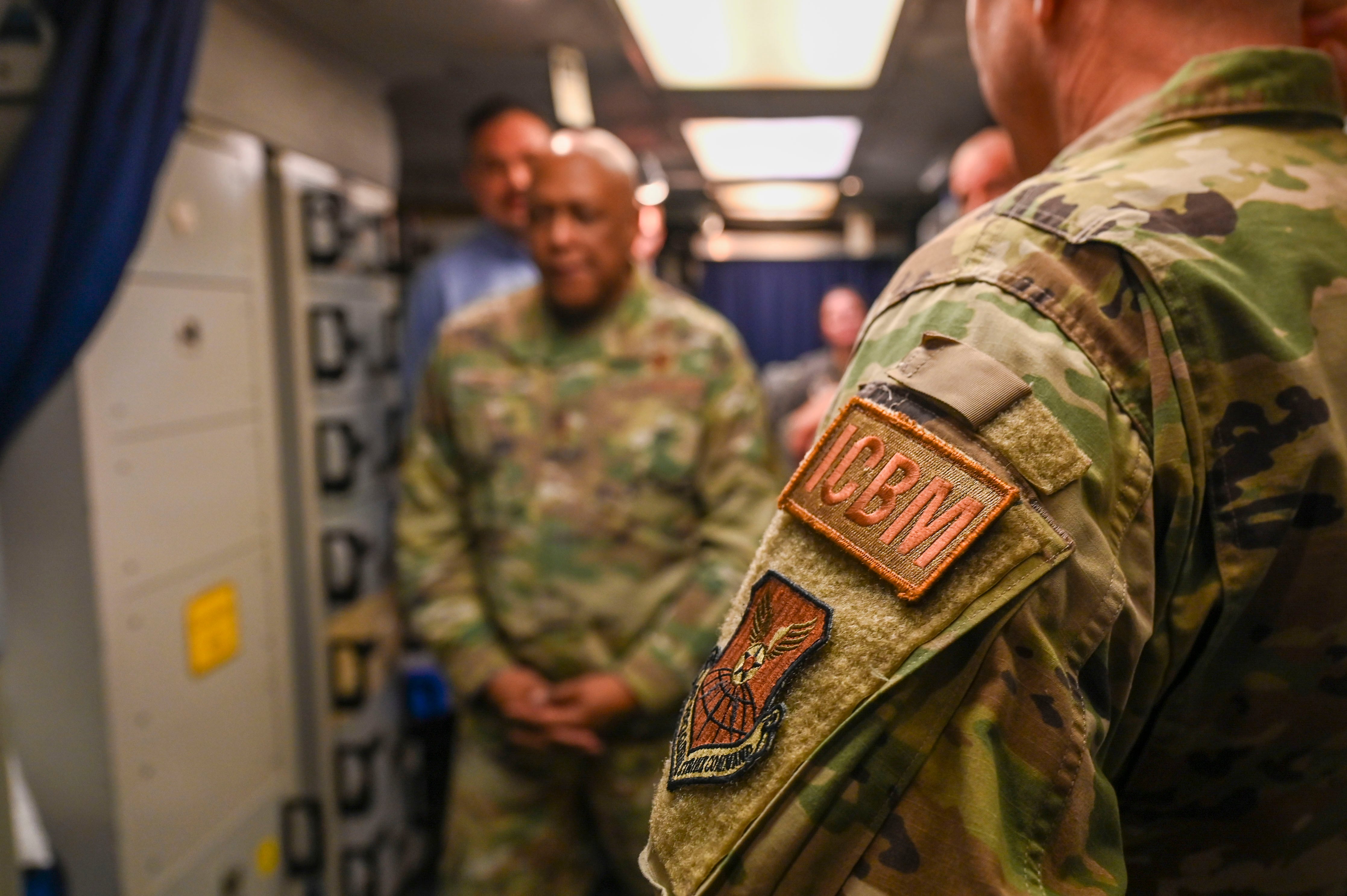A review by the Department of Veterans Affairs could lead to automatic disability benefits for troops who served in the nuclear missile community, including at Air Force bases where the service is studying if airmen stationed there have been disproportionately diagnosed with cancer.
The VA said in an April 12 letter to the Torchlight Initiative, a volunteer organization formed to advocate on behalf of airmen as the missile community’s cancer concerns began emerging early last year, that it is considering whether to presume that those troops were exposed to carcinogens as part of their military service.
By receiving presumptive eligibility for VA disability benefits, a veteran does not have to prove a service connection to a disease or injury to receive federal compensation for its effects. Those disability benefits can total several thousand dollars each month.
RELATED

“We will continue to gather as much science and evidence as possible to move swiftly for veterans facing serious illnesses due to military exposures,” VA wrote.
Air Force Times obtained the letter Monday; VA spokesperson Terrence Hayes confirmed its authenticity on Wednesday.
Such a review can take months or years to complete. If the decision moves forward, the airmen could join millions of veterans who were granted easier access to VA benefits under the 2022 Promise to Address Comprehensive Toxics Act — better known as the PACT Act — created to help those who worked around trash-burning pits and other sources of toxins. That access was subsequently expanded to include veterans exposed to Agent Orange, radiation contamination and more.
RELATED

Torchlight asked VA to research toxic exposures across the Defense Department’s missile sites and grant easier access to disability benefits in a letter in January, citing the Air Force’s ongoing study and its own efforts to add veterans and current airmen who have been diagnosed with cancer into a holistic database.
The initiative has found 454 self-reported cancer diagnoses among troops and their family members, 302 of which were among missileers.
“We are optimistic that the VA studying this issue, in addition to the DOD, will bring more data and more analysis that will help solve this problem,” Maj. Aaron Brynildson, a Torchlight volunteer stationed at Schriever Space Force Base, Colorado, told Air Force Times. “We have had a number of terminally ill members, and the dependents of missile veterans who are no longer with us, be denied VA benefits for failing to show a service connection. This potential rule will hopefully right that wrong.”
Results from the Air Force’s first phase of its cancer study, released in March, revealed nearly 200 cancer diagnoses among missileers — hundreds fewer cases than it expected. The service opted against drawing conclusions from the findings until it could review more data.
The first review analyzed medical records of more than 2.2 million airmen treated at military medical facilities from 2001 to 2021. Additional studies, which are expected to run throughout the year, will consider decades-old data from VA and DOD, including cancer registries, death indexes and a registry that includes cancer data from 45 states and U.S. territories.
RELATED

As that analysis moves forward, the service is also continuing to collect environmental samples from its operational missile wings at Malmstrom Air Force Base, Montana; F.E. Warren AFB, Wyoming; and Minot AFB, North Dakota; as well as at Vandenberg Space Force Base, California, where unarmed missiles are tested.
The sampling effort looks for polychlorinated biphenyls, or PCBs, a chemical class that was used in oils, electrical components, and more until it was banned more than four decades ago; plus radon, pesticides and other chemicals in the air, water and soil and on surfaces inside missile facilities.
Two missile-alert facilities at Malmstrom and one at Minot were found to have potentially unsafe levels of PCB contamination last year. A second round of tests for those toxins revealed no significant findings, the Air Force said.
Communities across the military, from fighter pilots to ground crews, have aired concerns that their work and where they are stationed may be to blame for more frequent cancer diagnoses.
Another recent Air Force probe found earlier this month that children at New Mexico’s Cannon Air Force Base were diagnosed with diffuse midline glioma, a rare brain cancer, more often than kids at other bases or in the U.S. at large — a discovery researchers believe is likely coincidental. Still, the service said that children at Cannon were no more likely to be diagnosed with brain cancer than others elsewhere.
Courtney Mabeus-Brown is the senior reporter at Air Force Times. She is an award-winning journalist who previously covered the military for Navy Times and The Virginian-Pilot in Norfolk, Va., where she first set foot on an aircraft carrier. Her work has also appeared in The New York Times, The Washington Post, Foreign Policy and more.





